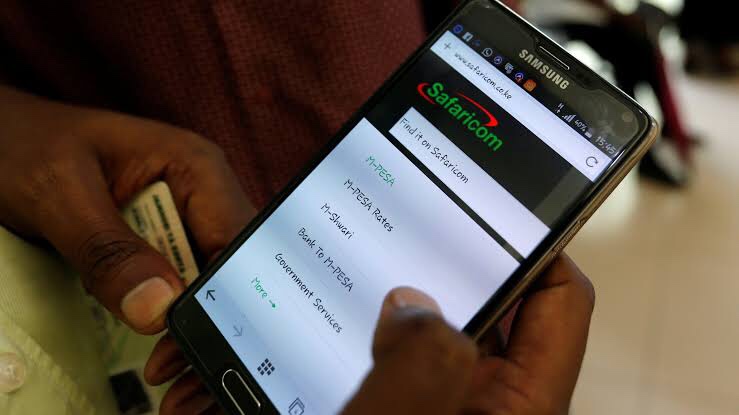The Central Bank of Kenya (CBK) has barred unregulated digital mobile lenders from forwarding the names of loan defaulters to credit reference bureaus (CRBs) and stopped the blacklisting of borrowers owing less than Sh1,000.
CBK said delinking unregulated digital mobile lenders from CRBs was as a result of the public outcry over widespread misuse of the credit information sharing (CIS) mechanism.
This means only banks like KCB #ticker:KCB , Co-operative Bank and NCBA Group as well as micro financiers and deposit-taking saccos will now be allowed to blacklist defaulters with CRBs in the country. These are Metropol, TransUnion and Creditinfo International.
Firms such as Tala and Branch have been locked out at a time when the bulk of accounts negatively listed are linked to mobile digital borrowers. Banks will also be blocked from listing defaulters with unpaid loans of less than Sh1, 000, enhancing the borrowers’ chances of being able to borrow more.
“The withdrawal is in response to numerous public complaints over misuse of the CIS (credit information sharing) by unregulated digital and credit-only lenders, and particularly their poor responsiveness to customer complaints,” the regulator said in a statement yesterday.
“Thus, unregulated digital and credit-only lenders will no longer submit credit information on their borrowers to CRBs.”
This came as CBK governor Patrick Njoroge announced that the suspension of CRB listing for loans that were defaulted from April 1 and the relief from blacklisting would last for six months.
The CRB listing relief is part of a stimulus package announced on March 25 to cushion distressed businesses and families from the effects of the coronavirus pandemic, which has hit consumer demand and forced businesses to shed jobs and cut back their operations.
Advertisement
Under the new rules, only defaults above Sh1, 000 will be shared with CRBs with borrowers who had been blacklisted for lower amounts now required to be cleared unconditionally.
More than 3.2 million Kenyans had been negatively listed as loan defaulters in an economy where job cuts and near stagnant wages have left thousands of people in a debt trap. Data from the CRBs show that the accounts negatively listed had jumped from 2.7 million last year, a significant number of them linked to mobile digital borrowers of less than Sh1, 000
The CRBs are also required to issue first-time clearance certificates free of charge in what the CBK said would be “particularly beneficial to Kenyan youth and graduates who are seeking employment”.
CBK said the revised CRB regulations, which have been in the pipeline since 2008, “seek to enhance consumer protection for borrowers, expand the sources of information and ensure the sustainability of the CIS as a key tool to bridge the information gap about the borrower’s creditworthiness”. Most of the mobile loan takers are oblivious to the conditions that include lifetime of SMS notifications, full surrenders of their personal data to third parties and waiver of their right to dignity.
In recent months, for instance, consumers of mobile app Okash who delayed or defaulted on their loan repayments have had the unpleasant experience of having the service provider reach out to people in their contacts list in a bid to recover the funds.
“Hello, kindly inform XX to pay the Okash loan of Sh2,560 TODAY before we proceed and take legal action to retrieve the debt,” says a sample text message the service provider sends to people in one’s contact list. “We have tried calling in vain. This is the last reminder. Many thanks, Okash team.”
Tens of unregulated microlenders have invested in Kenya’s credit market in response to the growth in demand for quick loans. Their proliferation has saddled borrowers with high interest rates, which rise up to 520 percent when annualised, leading to mounting defaults and an ever ballooning number of defaulters who have been adversely listed with CRBs.
Market leader M-Shwari, Kenya’s first savings and loans product introduced by Safaricom and Commercial Bank of Africa in 2012, charges a “facilitation fee” of 7.5 percent on credit regardless of its duration, pushing its annualised loan rate to 395 percent.
Tala and Branch, other top players in the mobile digital lending market, offer annualised interest rates of 152.4 percent and 132 percent respectively.
There's no story that cannot be told. We cover the stories that others don't want to be told, we bring you all the news you need. If you have tips, exposes or any story you need to be told bluntly and all queries write to us [email protected] also find us on Telegram

